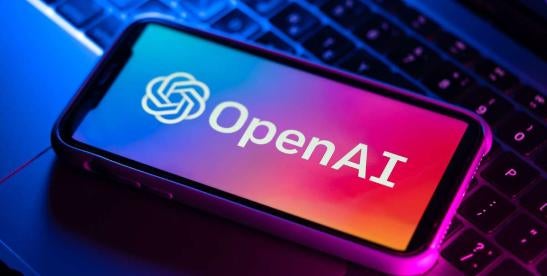With apologies to Jane Austen, it is a truth universally acknowledged, that a company in possession of a successful product must be in want of a lawyer. Despite worries about AI leading to job destruction, lawyers are getting plenty of work fighting over OpenAI’s ChatGPT generative AI. Here is a summary of OpenAI’s public disputes so far:
The Copyright War
On December 27th , 2023, the New York Times sued OpenAI and Microsoft (OpenAI’s investor) for “systematic and competitive” copyright infringement. In February of this year, publishers Alternet and Raw Story followed suit, so to speak. OpenAI also is being sued as part of proposed class actions that include comic Sarah Silverman, author Michael Chabon, and playwright David Henry Hwang. In another ongoing case, a group of programmers is suing OpenAI and Microsoft over use of open-source software for Microsoft’s AI-based CoPilot programming tool.
These suits generally allege that OpenAI trains the large language models (“LLMs”) upon which ChatGPT is built using content – articles, photos, jokes, stories, or software code – in violation of copyright and without licenses to do so. OpenAI and Microsoft fired back against the allegations. OpenAI blogged that the doctrine of “fair use” allows it to use copyrighted content for training its AI, in part because its AI transforms that content. Microsoft similarly has argued that because ChatGPT evaluates and converts text to create a product that responds to human prompts, it must be transforming that text. Microsoft compared ChatGPT to a VCR or search engine and accused the Times of essentially baiting ChatGPT by using “unrealistic prompts to try to coax the GPT-based tools to output snippets of text matching The Times’s content.”
These cases are all pending. Several claims in the Silverman and programmer lawsuits were dismissed earlier this year, but the core infringement claims remain. Some publishers, in lieu of filing suit, made licensing deals with OpenAI. The Associated Press and the publisher of Politico both entered into license agreements allowing use of their content to train ChatGPT. The pending lawsuits, however, are not ripe for quick resolution. Whenever and however resolved, the copyright issue will have major consequences for OpenAI and other developers of generative AI products. OpenAI itself stated that development of its generative AI tools requires use of bulk copyrighted content.
ByteDance’s Dance Beyond the Terms of Use
In December, OpenAI suspended the account of ByteDance, parent company of TikTok. OpenAI determined that ByteDance used OpenAI’s API to train its own LLM. OpenAI’s Terms of Use do not allow users to “use output from [OpenAI’s] Services to develop models that compete with OpenAI.” ByteDance responded that it was using OpenAI’s API to only “a very limited extent” to develop its AI models. Neither ByteDance nor OpenAI has disclosed whether ByteDance’s account was reinstated, and ByteDance reportedly continues to develop AI products. This Terms of Use dispute is an example of what may be a wider issue for OpenAI – its customers using its products to become its competitors. The dispute also begs the question of whether OpenAI is hypocritical to object to ByteDance using OpenAI’s product to train ByteDance’s AIs, when OpenAI is accused of doing much the same. The New York Times’s Terms of Service – updated the same day it filed suit against OpenAI – state that users may not “use the Content for … training a machine learning or artificial intelligence (AI) system.” Of course, OpenAI could argue that ByteDance accepted the Terms for its paid access to OpenAI’s API, and that ByteDance has no “fair use” argument. Regardless, violation of the proliferating terms of use/service restricting training of AIs may become another front in this war.
Musk Joins
In On February 29th, Elon Musk sued OpenAI and its founder Sam Altman for breach of contract and unfair competition. Musk helped found OpenAI in 2015 but left its board in 2018. In the suit, Musk alleges that OpenAI breached a 2015 “Founding Agreement” that the company would be “a non-profit developing [Artificial General Intelligence] for the benefit of humanity” and “would not keep its technology closed and secret for proprietary commercial reasons.” Musk argued that OpenAI, by keeping the details of GPT-4’s design a secret, has made ChatGPT “a de facto Microsoft proprietary algorithm.” On March 5th, OpenAI posted a response on its blog detailing its history with Musk, including excerpts of emails between them. OpenAI argues that Musk recognized in 2017 that the company needed to be for-profit and that he wanted either to control the company or merge it with Tesla. In a separate court filing on March 6 th , OpenAI denies even the existence of the Founding Agreement and calls Musk’s claims “contrived.” The case continues.
What’s Next?
We can expect content owners to continue seeking revenues generated by AIs in their content trains. Many will go the licensing route, though agreeing on how, for how long, and for how much will not be easy. Some will proceed with lawsuits, though few as high-profile as the Times’s. Others will focus on using their content to develop their own AIs. At some point, Congress may weigh in, first with hearings, then legislation, but anyone expecting a quick legislative fix will be disappointed. The legal issues arising from the success of OpenAI and its competitors show no sign of resolving soon. Lawyers will have plenty of work to do – perhaps using those same AI tools themselves.




 i
i


